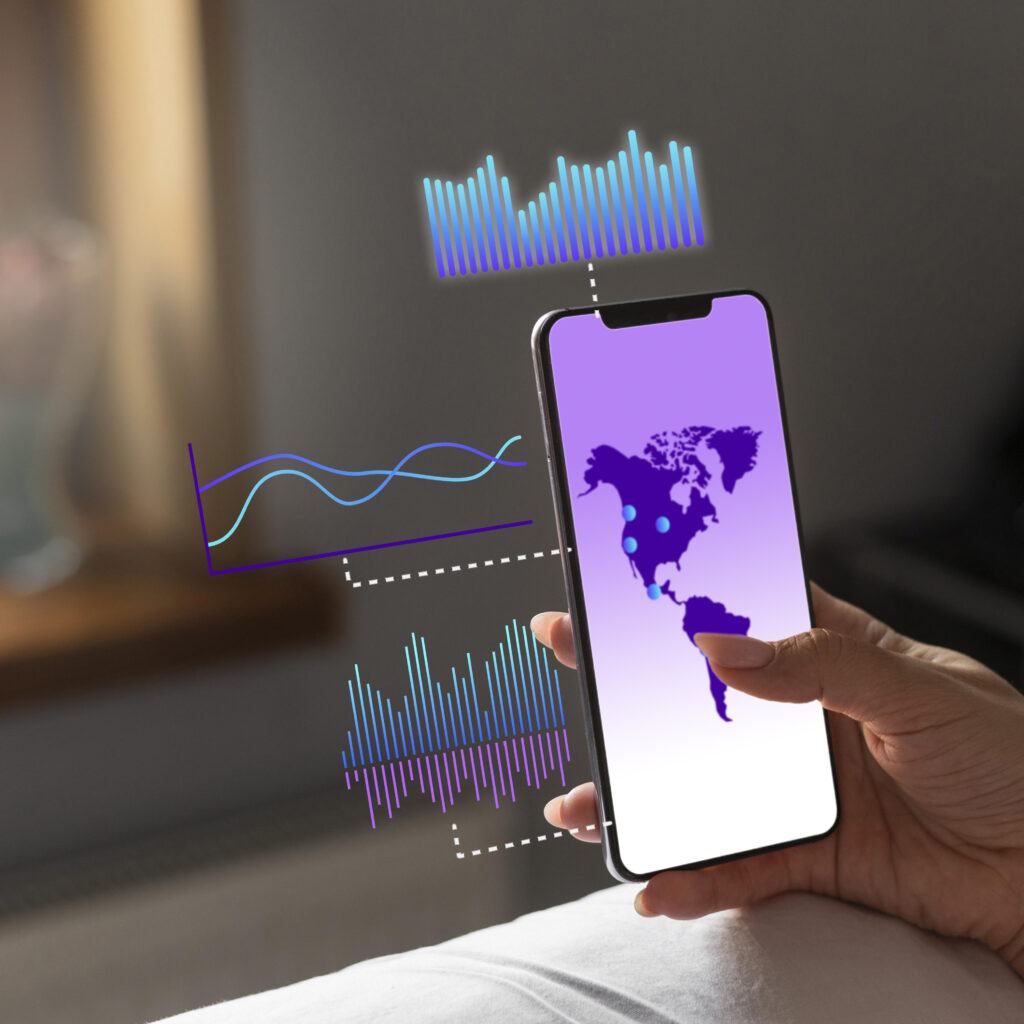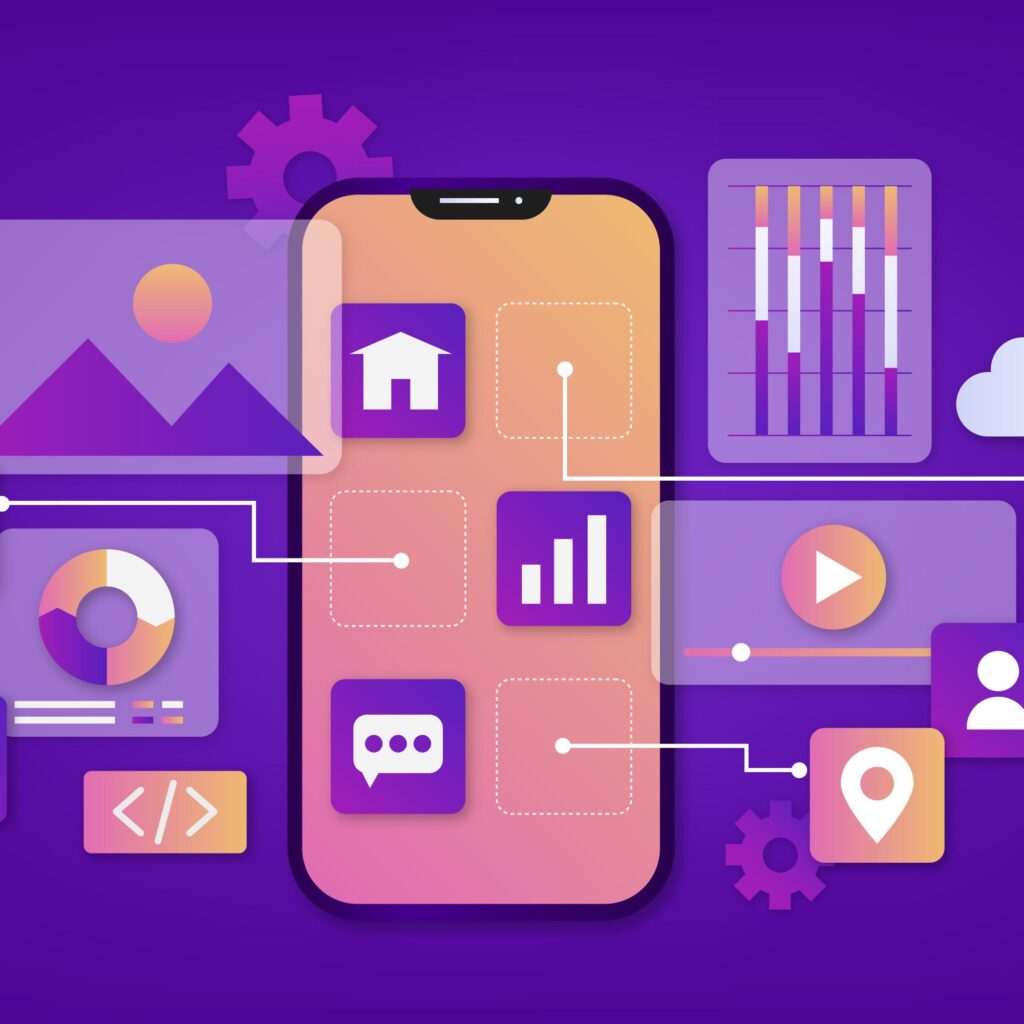In the fast-paced world of technology, staying updated with the latest application development trends is essential to create innovative and successful apps. As we venture into 2023, it’s crucial to be aware of the emerging trends that are shaping the future of app development. In this blog, we will explore the top 10 application development trends you need to know to stay ahead of the curve. From AI-powered apps to blockchain integration, these trends offer exciting opportunities to enhance user experiences and drive business growth.

AI-Powered Apps – Revolutionizing User Interactions
Artificial Intelligence (AI) has become a game-changer in application development trends. With advancements in machine learning and natural language processing, AI-powered apps can provide personalized experiences, predictive analytics, and intelligent automation. Incorporating AI features, such as voice recognition, chatbots, and recommendation engines, can revolutionize user interactions, making apps more intuitive and user-friendly.
Internet of Things (IoT) Integration – A Connected Ecosystem
The Internet of Things (IoT) continues to expand its reach, connecting devices and creating a seamless ecosystem. Integrating IoT into mobile applications allows for real-time data collection, remote control capabilities, and smart automation. Imagine controlling your home appliances, monitoring your health, or managing your car through a single app. IoT integration opens up new possibilities for app developers to create innovative and interconnected experiences.
Augmented Reality (AR) and Virtual Reality (VR) – Immersive Experiences
Augmented Reality (AR) and Virtual Reality (VR) have transformed the way we experience digital content. From gaming and entertainment to education and e-commerce, AR and VR have found applications in various industries. Incorporating AR and VR into mobile apps can provide users with immersive experiences, allowing them to interact with virtual objects and environments. Harnessing the power of AR and VR can enhance user engagement and open up new avenues for creative app development.
Progressive Web Apps (PWA) – The Best of Both Worlds

Progressive Web Apps (PWA) combine the best features of websites and native mobile apps. PWAs are web applications that provide an app-like experience on any device, regardless of the operating system. They offer offline capabilities, push notifications, and quick loading times. By leveraging technologies like Service Workers and Web App Manifests, PWAs can deliver fast and engaging experiences to users, eliminating the need for separate app development for different platforms.
Blockchain Integration – Secure and Transparent Transactions
Blockchain technology has gained prominence beyond cryptocurrencies, offering secure and transparent solutions for various industries. Integrating blockchain into mobile applications can enhance security, privacy, and trust in transactions. From decentralized finance to supply chain management, blockchain-enabled apps can revolutionize industries by providing tamper-proof records, smart contracts, and secure peer-to-peer transactions.
Low-Code Development – Streamlining the App Development Process
Low-code development platforms are empowering app developers to create applications quickly and efficiently. These platforms provide pre-built components and visual interfaces, allowing developers to drag-and-drop elements to build apps without extensive coding knowledge. Low-code development streamlines the app development process, enabling faster prototyping, rapid iterations, and reducing time-to-market.
Voice Interface – Conversational User Experiences

Voice interfaces, powered by technologies like natural language processing and speech recognition, are transforming the way we interact with applications. Voice-enabled apps offer hands-free and convenient interactions, allowing users to perform tasks using voice commands. Incorporating voice interfaces into apps can enhance accessibility, improve user engagement, and create conversational user experiences.
Cross-Platform Development – Reach a Wider Audience
In a diverse mobile landscape, cross-platform development frameworks like React Native and Flutter have gained popularity. These frameworks enable developers to write code once and deploy it across multiple platforms, saving time and resources. With cross-platform development, apps can reach a wider audience, as they are compatible with both iOS and Android devices, ensuring a consistent user experience across platforms.
Enhanced App Security – Protecting User Data

With the increasing number of data breaches and privacy concerns, app security has become a top priority. Developers need to implement robust security measures, including data encryption, secure authentication, and compliance with privacy regulations. By prioritizing app security, developers can protect user data, build trust, and maintain a loyal user base.
Edge Computing – Faster and More Efficient Apps
Edge computing brings computing power closer to the source of data, reducing latency and enhancing app performance. By processing data at the edge of the network, apps can deliver faster response times and reduce reliance on cloud-based servers. Edge computing is particularly beneficial for applications that require real-time processing, such as IoT, gaming, and live streaming.
Conclusion
As we embrace 2023, the world of application development is evolving at a rapid pace. By understanding and embracing these top 10 application development trends, developers can create innovative, engaging, and successful apps. Whether it’s leveraging AI, integrating IoT, or exploring AR and VR, staying ahead of these trends will enable you to deliver exceptional user experiences and stay competitive in the dynamic landscape of mobile app development. So, dive in, explore these trends, and unlock the endless possibilities they hold for your next app development venture.
